Kulen, Prosciutto and Olive Oil Most Recognizable Croatian Products
January 5, 2022 - Key ingredients of the Mediterranean diet are becoming the most recognizable Croatian products in the world.
The pandemic and stagnation in the world market have further emphasized the need for Croatia to focus on its food production. This is especially true for meat and meat products. Nevertheless, the potential certainly exists because according to the calculation of the Faculty of Agriculture in Zagreb, in 2018, the self-sufficiency of the Republic of Croatia in meat production amounted to 70.64%, reports T.portal.
Croatian Member of the European Parliament and negotiator of the EPP Group for the Committee Opinion on the Internal Market and Consumer Protection on the 'Field to Table' Strategy, Tomislav Sokol, managed to fight for the protection of traditional Croatian products such as kulen and prosciutto.
"The European Union is determined to make the food system healthier and more sustainable. This does not mean giving up our traditional meat products such as Slavonian kulen and Istrian or Dalmatian prosciutto. Moreover, I am sure that our products, known for their top quality and traditional production methods, do not threaten citizens' health. As a member of the Committee on the Internal Market and Consumer Protection, and as a rapporteur for European citizens, I intervened in the text of the Opinion on the European Commission's Field-to-Table Strategy to protect the production of traditional Croatian products," says Tomislav Sokol.
Croatia has significant production potential in this sector, which opens new economic and development perspectives, especially for the Croatian countryside. Europe must become self-sufficient in producing quality and healthy food, and Croatian agriculture and the food industry must be integral elements of this system.
Sokol ensured that the Mediterranean diet does not qualify as unhealthy in that Strategy. Namely, other political groups in the European Parliament agreed on the text of the Opinion, which would label European, and thus the Mediterranean diet, unhealthy. However, during the negotiations on the specific amendment, Sokol insisted on changing the text of this act, which would mark the European and Mediterranean diet as unhealthy.
"I must admit that I was quite surprised when I noticed in the text that our diet was to be declared unhealthy. Flat and unfounded claims must not occupy space in official documents of the European Parliament. From the beginning, I was clear in my position, and I am glad that I was able to convince other fellow Members of my position. We are proud of our Mediterranean lifestyle and diet that includes the use of fresh foods, fish, fruits and vegetables, and essential olive oil," explains Sokol.
It should be reminded that the 'Field to Table' Strategy defines key priorities for setting up a sustainable and healthy food system, and the fact that the Action Plan accompanying the Strategy envisages the adoption of 27 legislative and non-legislative acts until 2024 shows how complex the implementation of this Strategy will be.
To read more about lifestyle in Croatia, follow TCN's dedicated page.
Six of the Best! Croatian Protected Produce On Sale in China
September 18, 2020 – Six items of Croatian protected produce are among the 100 European items to go on sale in China
Six items of Croatian protected produce are among the 100 European items to go on sale in China. In a reciprocal deal, 100 Chinese products will also be recognised and recommended on the European market.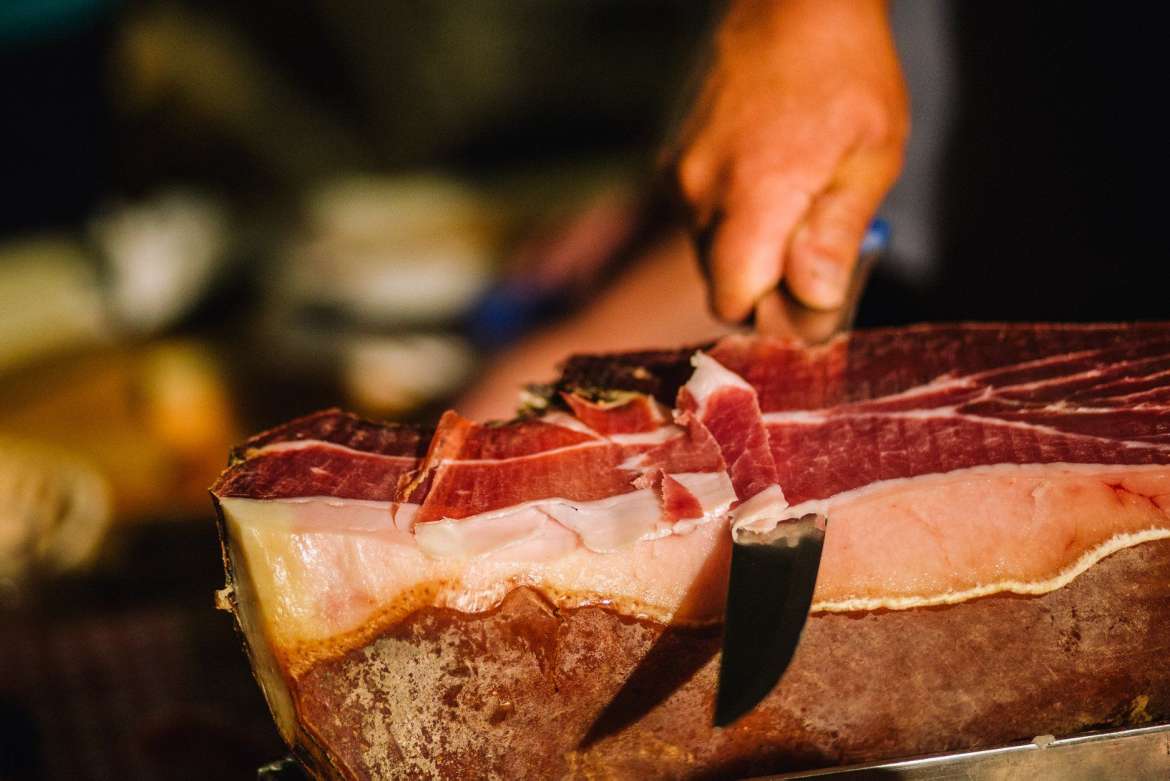 Dalmatian prosciutto © TZ Vrgorac
Dalmatian prosciutto © TZ Vrgorac
Baranja kulen, Dalmatian prosciutto, Drniš prosciutto, Lika potatoes, Dingač wine and Neretva mandarins are the premium six Croatian protected produce chosen to be among the European 100. All of the Croatian protected produce is already recognised at a national and at an EU-level and designated its status based on its unique place of origin.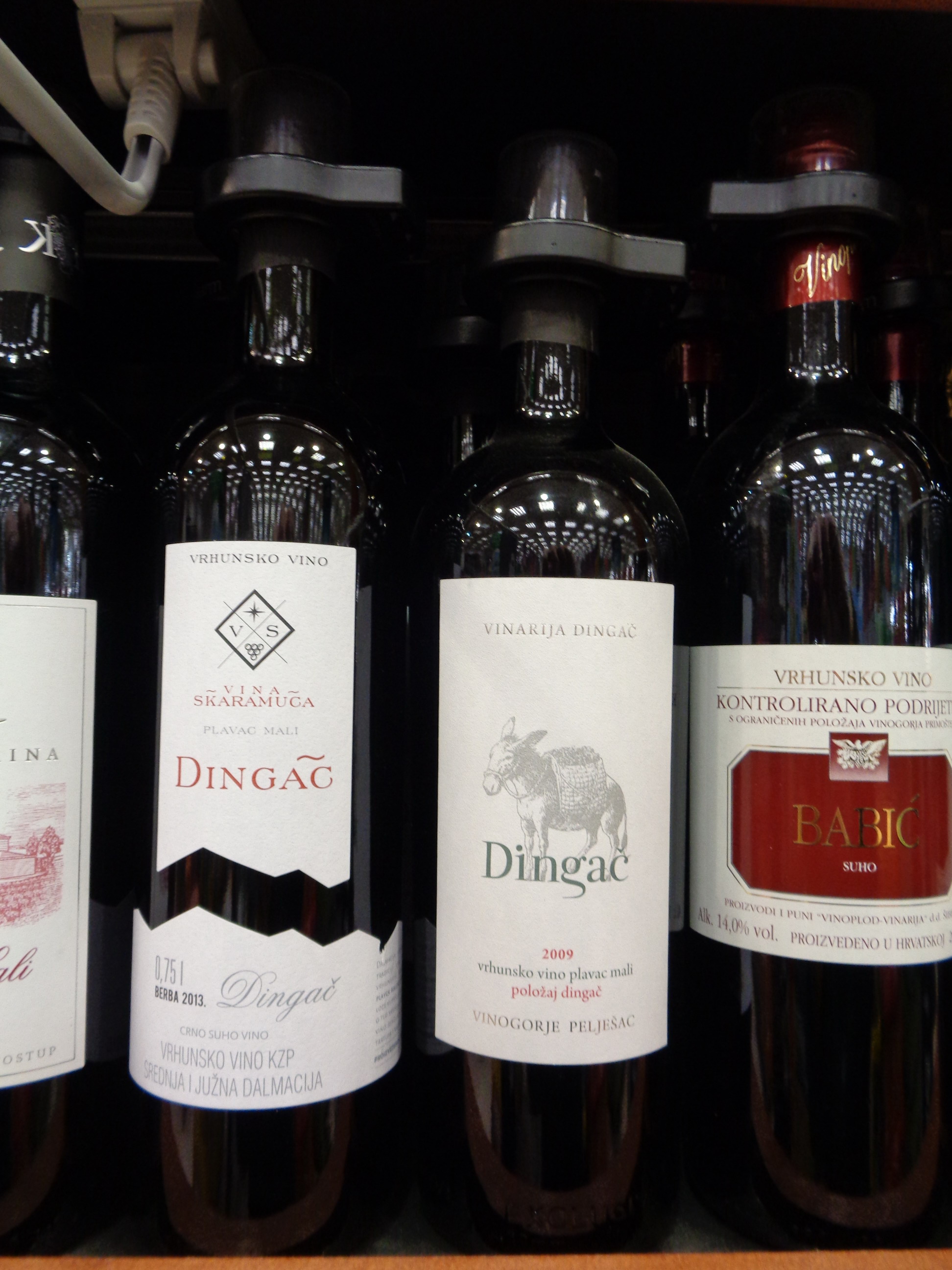 Dingač wine © Silverije
Dingač wine © Silverije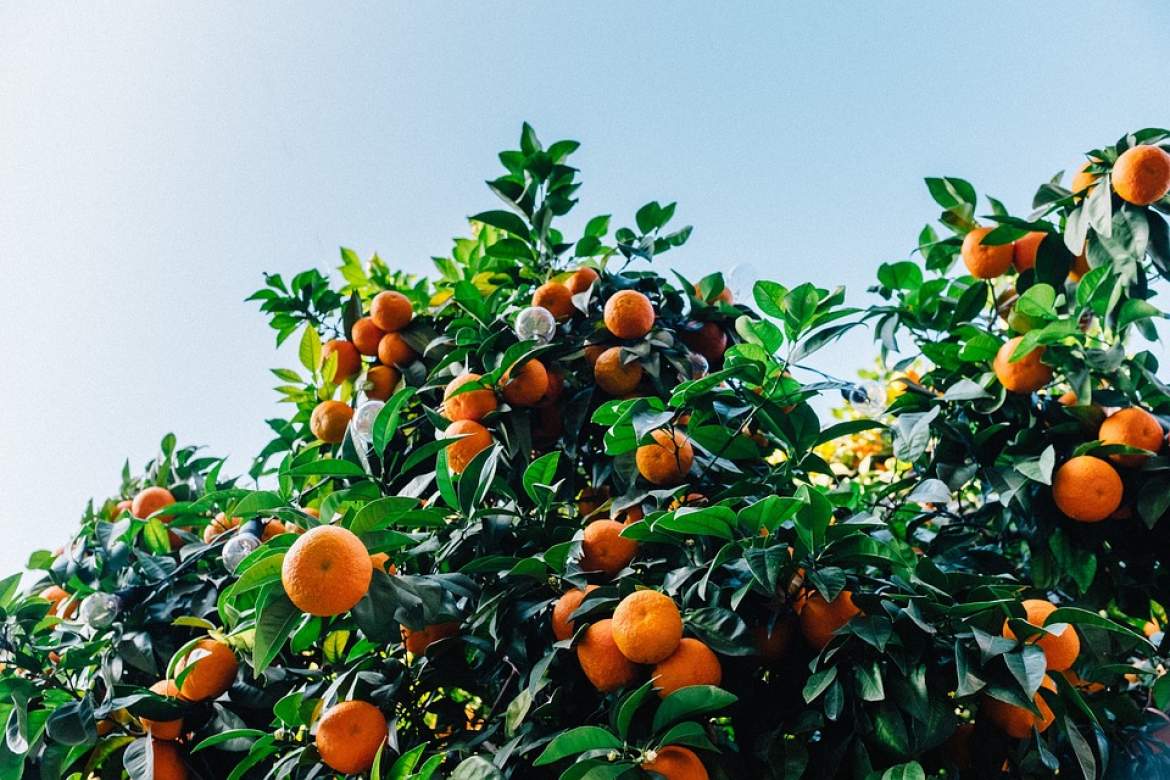 Neretva Mandarins
Neretva Mandarins
The European products will be specially marked and receive special privileges when they go on sale in China. Alongside the Croatian protected produce, other items on the European list are French champagne, Greek feta cheese, Italian Parma prosciutto, Italian mozzarella, Irish whiskey and Portuguese port. On the Chinese list of products are distinct varieties of rice, bean and vegetable products, some of which will already be popular with Europeans who eat or cook Chinese cuisine.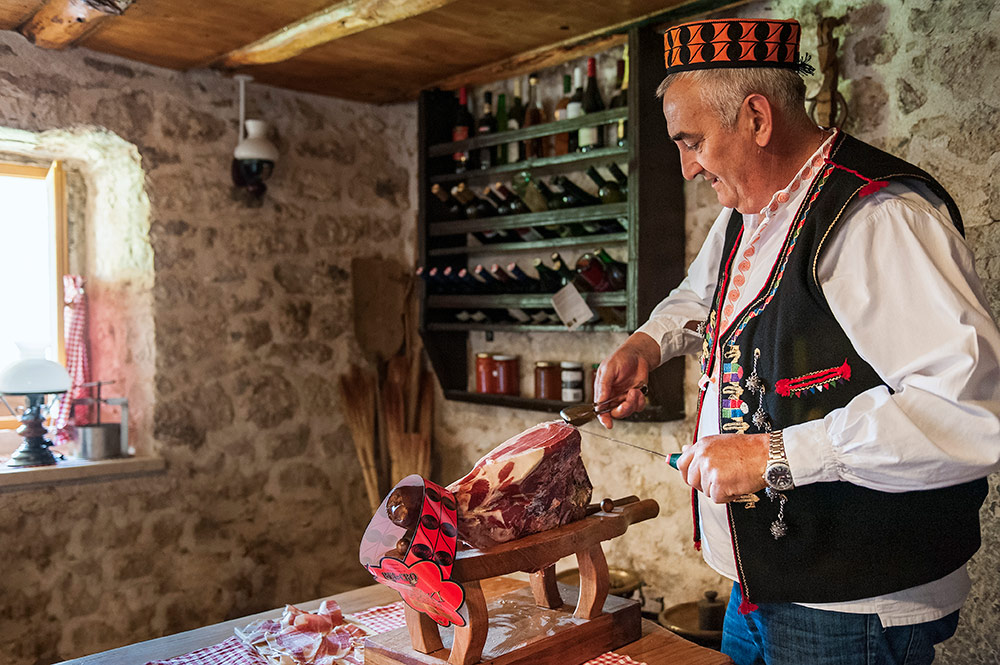 Drniš prosciutto © Tourist Board of Drniš
Drniš prosciutto © Tourist Board of Drniš
The full list of Croatian produce protected at an EU-level currently includes Istrian olive oil, Dalmatian prosciutto, Pag cheese, Lika lamb, Poljički Soparnik, Zagorje turkey, Korčula olive oil, Istrian prosciutto, Sour cabbage from Ogulin, Neretva mandarins, Slavonian honey, Drniš prosciutto, Cres olive oil, Pag salt, Baranja kulen, Bjelovarski kvargl, Varaždin cabbage, Pag lamb, Šolta olive oil, Meso 'z tiblice, Zagorje mlinci, Krk prosciutto, Lika potatoes, Slavonian kulen, Krk olive oil.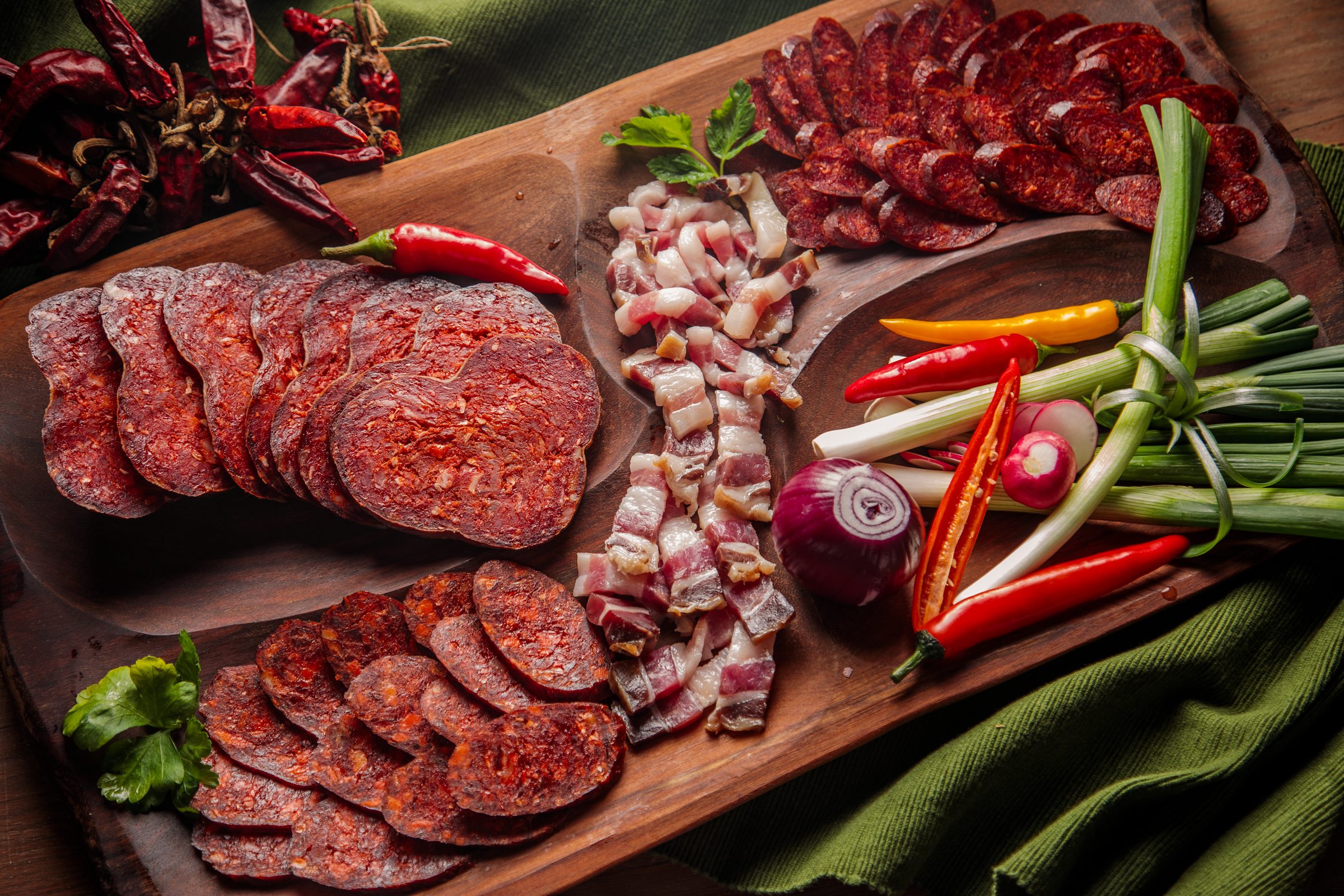 Baranja kulen, featured within a traditional Slavonian platter © Romulić & Stojčić
Baranja kulen, featured within a traditional Slavonian platter © Romulić & Stojčić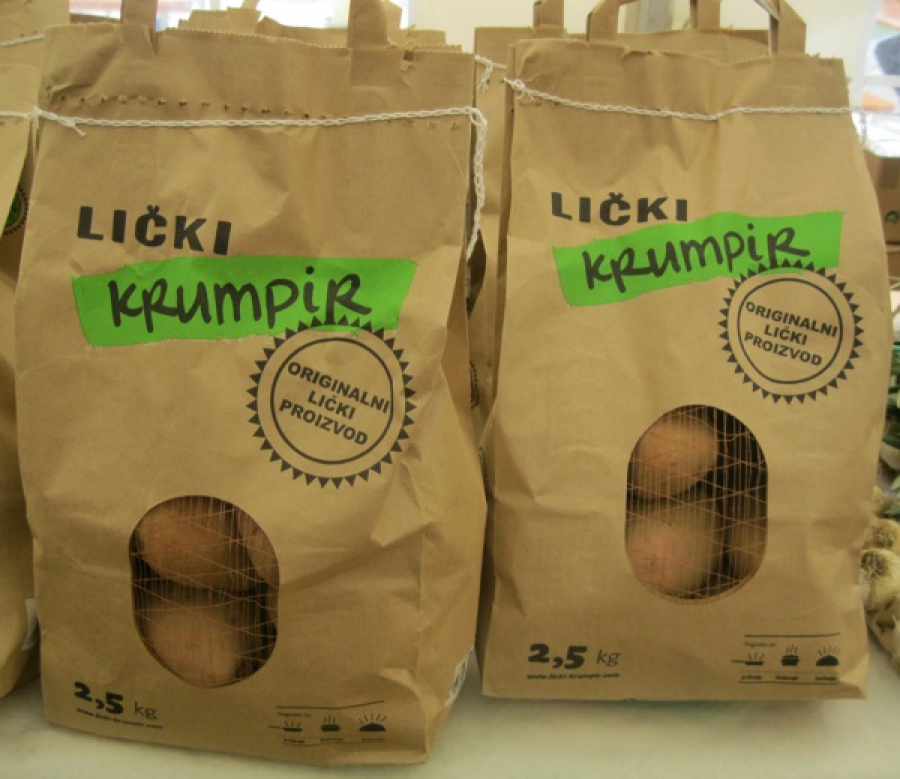 Lika Potatoes
Lika Potatoes
For the latest travel info, bookmark our main travel info article, which is updated daily.
Read the Croatian Travel Update in your language - now available in 24 languages
Warm Winter Destroying Kulen and Other Meat Delicacies
Due to high temperatures, kulen and sausages from small producers will be in short supply this year.
Varaždin Cabbage and Slavonian Kulen Receive EU Protection
Two new Croatian products have received EU protection.
Authentic Croatian Flavours Presented to German Customers
Agrolaguna and Belje took part in a fair in Berlin.
Baranja Kulen Presented at Fair in Paris
Kulen was one of the stars of SIAL Fair in Paris.
Harvard Students Praise the Famous Croatian Kulen
Kulen keeps winning over hedonistic hearts.
"Baranjski Kulen" Protected as an Original Croatian Product on the EU Market
A Croatian regional gourmet treasure achieves EU recognition.
Baranja Kulen Presented in the European Parliament
A gourmet delight from Baranja is presented in Brussels.


